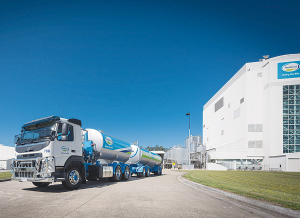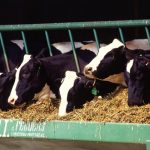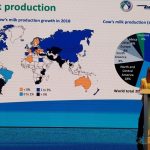
Fonterra on Thursday announced its worst-ever annual result as it wrote down the value of its assets by hundreds of millions of dollars and promised to stay more focused on its roots on New Zealand dairy farms.
Owned cooperatively by 10,000 farmers, the company is by far the most important to New Zealand’s economy and is responsible for some 25% of all New Zealand’s exports. One of its key successes has been in exporting milk powder to China which is used in infant formula.
“We need to become a leaner organization,” chief executive Miles Hurrell told reporters.
He said there would be job losses across the company which employs 20,000 people worldwide, although he didn’t specify the timing or the extent of those losses beyond announcing the planned closure of one New Zealand cheese plant that employs 70 people.
“We’re going back to being a New Zealand-based dairy co-op,” said chairman John Monaghan, adding that “you won’t hear us using words like world-leading or world-best. If others wish to say that about us, that’s great.”
Chris Lewis, a dairy farmer and spokesman for lobby group Federated Farmers, said the results were very disappointing and frustrating. He said he liked the idea behind the company’s new strategy but needed to see a big turnaround in the next results to be convinced. He said Fonterra needed to quickly reduce its head count, its operating expenses and its debt.
The company on Thursday announced an after-tax loss of 605 million New Zealand dollars ($380 million) for the year ended July, compared to a loss of NZ$196 million the previous year. The loss included write-downs of NZ$826 million.
Fonterra had previously announced it expected big losses and the results were not a surprise to markets. Some analysts question whether the company has yet to fully reflect the extent of its losses, while Fonterra will be hoping it has drawn a line under them.
The write-downs included more than NZ$200 million from farms in China, NZ$149 million from businesses in Brazil, NZ$134 million from Venezuela and NZ$45 million from Australia. The company also included write-downs to its New Zealand operations of NZ$237 million.
Sales revenue for the year dipped by 2% to NZ$20.1 billion.
Last year both the previous chief executive and board chairman quit and the company reported losing hundreds of millions of dollars in its investment in China-based infant food company Beingmate. The new leadership team of Hurrell and Monaghan had promised a complete review of the company’s operations and strategy.
Economist Cameron Bagrie, from Bagrie Economics, said he thought Fonterra had a very long and tough road ahead of it to get back to being successful. He said it was the latest in a long list of New Zealand companies that had tried to expand overseas and ended up losing lots of money by not properly understanding the foreign markets.






















